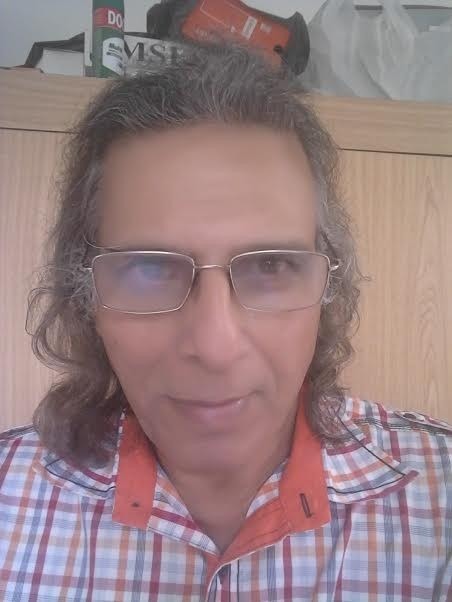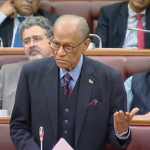Mauritius can never be like Singapore and other developed countries as long we have a system of communalism and nepotism that exist within our administration. In Singapore we have development that benefited the masses, whereas in Mauritius we have a capitalist system of development especially when we talk about the construction of Smart Cities. Our country is divided into the very rich and the very poor and such gap is getting wider day by day.
Economists love to measure development by indices such as Gross Domestic Product, per capita income etc… The fault of such measurement is that it does not take into account the human side of development. It does not answer how equitable such development had been or whether the fruits of development had benefited the masses. They call it the “trickle down” effect. The very word signifies that nothing big is expected to reach the lower strata of society. Obviously capitalist development with its Smart Cities is for capitalists and not workers. That’s why the benefits could only trickle down. It is also as an insurance cover for the perpetuation of the system.
The current revolutions in the Arab lands have drawn a point which would be useful here. Both Tunisia and Egypt had comparatively favourable rates of growth. The GDP growths were impressive. It was not an economic crisis that led to the revolts of the masses.
The problem was the lack of equity and justice. Neo-liberal development had fattened a class of rich and new rich while there was mass unemployment. The system was kept by suppression of rights of the people. It was a rule by an iron fist which tested the patience of the masses for the past few years.
This shows that development without social justice is bound to fail sooner or later. In other words the rulers should guarantee a minimum living standard for the masses and a minimum degree of freedom. Anyone who transgresses that limit would run the risk of being thrown out.
The world is facing a severe food scarcity. The world financial crisis has led to curtail production in Europe and America our traditional trade partners. In addition the turmoil in West Asia has driven fuel prices up. The latter would have a cumulative effect on the prices of all goods and services, including those manufactured locally.
This would make life increasingly difficult for the poor. Already the poor, whether rural, urban or estate suffer from malnutrition. In a situation of escalating food prices and food scarcity the challenge of overcoming malnutrition among the poor would be still bigger. Malnutrition is worst in children under five years old living in exclusion areas.
These challenges make it imperative to have a holistic view of development without depending solely on the rise in the GDP and the stock exchange as a measure of success. It is imperative to increase savings and investment and raise productivity.
Good development demands more thrift, more economy and more sacrifice. In sacrificing one cannot sacrifice the basics or what is essential to sustain life. That is why development to be long lasting and stable needs a safety net for the lower strata of society and maximum sacrifice from everybody. It is high time that the message is clearly understood that there is no development without sacrifice and no meaning of sacrifice without development.
The solution to save our country from such catastrophic state is we need a complete change of our autocratic system into a pure democratic system. Today, Mauritius is on the brink of bankruptcy. Any economics expert worthy of that name will tell you this! Our country desperately needs a change of government with new ideologies to both social justices, and an equity welfare to all its population.
By Ahmad Macky




![[Yoga] A shared legacy, a shared future](https://sundaytimesmauritius.com/wp-content/uploads/2025/06/Yoga-Article-HC-218x150.jpg)
![[Khutbah – La Réflexion du Vendredi] Tawakkul, la confiance absolue en Allah (swt)](https://sundaytimesmauritius.com/wp-content/uploads/2025/06/Tawakkul-218x150.jpg)

![[Poetry corner] In memory of my friend Swabir Goodur](https://sundaytimesmauritius.com/wp-content/uploads/2025/04/CASAM-218x150.jpg)
![[Doha Football Academy] Eid Cup 2025](https://sundaytimesmauritius.com/wp-content/uploads/2025/06/c34ff12a-6673-4967-9709-cd171a61efd6-1024x683-1-150x150.jpg)
![[Ex-parlementaires] Les manifestants du MSM renonceront-ils à leur pension ?](https://sundaytimesmauritius.com/wp-content/uploads/2025/06/pic-150x150.jpg)


![[Doha Football Academy] Eid Cup 2025](https://sundaytimesmauritius.com/wp-content/uploads/2025/06/c34ff12a-6673-4967-9709-cd171a61efd6-1024x683-1-100x70.jpg)
![[Ex-parlementaires] Les manifestants du MSM renonceront-ils à leur pension ?](https://sundaytimesmauritius.com/wp-content/uploads/2025/06/pic-100x70.jpg)
